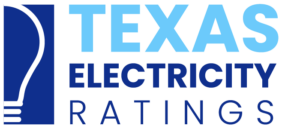If you’ve read Part 1 and Part 2 of my examination of AEP’s application to sell deregulated electricity in Texas you are acquainted with both the basics of the situation, as well as just how much confusion exists by consumers in the Texas marketplace. In this section, I’m going to pick back up on market confusion and competition, examine why AEP is insisting on operating under the AEP brand and talk about how the rest of the Texas electricity market views AEP’s application.
Brand Awareness, Competitive Advantages, and Market Confusion
Anyone who has ever taken a marketing class or just watched a healthy amount of television understands the importance of marketing and brand awareness. When viewed under that lens, it is easy to see why AEP wants to sell electricity service under the AEP brand name. In the same survey we referenced in Part 2, which was commissioned by AEP to support their REP application, it was revealed that 52% of all customers in the AEP Texas TDU service area expressed some form of brand recognition for AEP Retail Energy. To recap, AEP Retail Energy is the brand name AEP hopes to sell retail electricity under and for all intents and purposes is a company that does not even exist to retail customers in Texas. Yet 52% of people expressed recognition. Additionally, it had the second highest recognition of any REP brand currently operating in any AEP territory behind only West Texas Utilities (37% to 36%), the former AEP retail electricity branch which was sold to Direct Energy in 2002.
That is the power of branding. When a company that doesn’t even exist yet in Texas has 56% total state market awareness and is effectively tied for first as the most known brand in a company’s native service territory, it is easy to see why AEP is so intent on doing business as AEP Retail Energy. The AEP name brand gives them a huge competitive advantage.
If you don’t believe brand awareness is that big a deal, lets further shine a light on the competitive advantages and their importance in the Texas deregulated electricity marketplace. Here are some more telling facts from the survey results turned up by AEP.
So what does all this data tell us? It tells us that brand recognition is extremely important when competing for customers. It’s no coincidence that TXU and Reliant are far and away the largest two REPs in the state of Texas. The two companies combine to serve almost 45% of all deregulated electricity customers in Texas. Is it any wonder that AEP wants to also capitalize on their own pre-existing brand awareness? They want to be one of three companies fighting for that 45%, as opposed to one of the other 50 or so REP’s slugging it out for the other 55% percent of customers.
What Does Everyone Else Think?
Not surprisingly, not everyone is on board with the AEP license application. CPL (Central Power & Light), sold by AEP to Direct Energy in 2002, has filed an intervention in their petition protesting the move. We can assume Direct Energy is frustrated by the idea that AEP could resume business in the REP space. Much of the value they got when they purchased CPL and and WTU (West Texas Utilities) from AEP was in the familiar brand names to the people in those service areas. The same way Reliant and TXU have the name recognition and history of brand awareness that comes with being an incumbent. If AEP suddenly comes into those areas and sells electricity as anything with AEP in their name, it drastically devalues Direct Energy’s purchase. And customers in that area will likely be even more confused, as has already been illustrated.
Direct Energy is not alone in their protests. The Alliance for Retail Markets (ARM) and The Texas Energy Association of Marketers (TEAM) have also filed motions to intervene in protest of AEP’s application. ARM is a coalition of REPs that act together in some matters, including Gexa, Champion Energy, Green Mountain and more. TEAM is a similar group of deregulated market participants made up or other REPs with members that include Bounce Energy, Amigo and Tara Energy, StarTex Power, Cirro Energy and more. So basically, all of the other REPs in Texas are opposed to AEP’s application to sell deregulated electricity. They know that AEP will be have a distinct advantage because of established brand recognition. Additionally the PUC will also weigh in with their opinion in court, and my understanding is that they’re strongly against the idea of allowing AEP to do business as AEP Retail Energy. Whether that prevents them from doing business as some other name isn’t clear
This concludes my examination of the importance of brand awareness and the market confusion that still exists in the world of Texas electricity. In the last post in this series, I’ll offer my own opinions on AEP’s actions as well as some other concerns that aren’t being addressed in the hearings.
